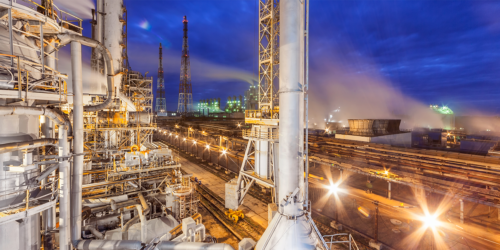Fertiliser industry has urged the federal government to clear its pending refunds of Rs57 billion and provide relief to the sector in its upcoming budget by rationalising general sales tax (GST) for ease of doing business.https://1d9e23587209037635570b7739e57643.safeframe.googlesyndication.com/safeframe/1-0-38/html/container.html
The industry also demanded for rationalising of input-output adjustment formula of the GST. Presently, fertiliser manufacturers are paying input at 5-17 percent of GST rate and collecting GST on output at 2 percent. This was resulting in approximately Rs7 to Rs8 billion annual unadjusted input sales tax for the sector.
According to the budget proposals sent to the Federal Minister for Finance Shaukat Tarin by the Fertilizer Manufacturers of Pakistan Advisory Council (FMPAC), the industry was being haunted by cash flow challenges and associated financial cost due to the pending dues with the federal government.
FMPAC said that Rs19.217 billion were pending with the government for the past three years from subsidy schemes from 2016-2018, while Rs38.152 billion were pending under GST refunds.
The FMPAC urged allocation of funds for outstanding payments on account of subsidy and GST refunds in the Budget 2021-22.
The industry pointed out that the prevailing sales tax regime on fertiliser supply chain under the present tax laws caused a significant imbalance between input and output GST, leading to perpetual piling up of refundable amount of manufacturers that were already suffering on account of non-payment of subsidy.
The industry recommended reduction in input GST rates on natural gas and RLNG to zero to reduce the gap between input and output GST.
Fertiliser industry charges, collects and deposits the sales tax on the retail price of all fertiliser products. “Government receives the entire sales tax from the fertiliser supply chain through the fertiliser manufacturers. Thus, the reduction in input GST rates would not have any negative impact on government revenues from the fertiliser supply chain,” it argued.
The FMPAC referred that the government in Finance Act 2018 reduced the rate of output GST on the sale of urea from five percent to two percent, but no corresponding adjustment was made in the input tax rates which were maintained at five to 17 percent. This triggered considerable amount of unadjusted input sales tax, it said.
“The industry is currently paying an input tax of around Rs101 to Rs144 per bag of urea, which is more than the output GST of Rs33 per bag resulting in GST refund/adjustment of Rs68 to Rs111 per bag, for natural gas and RLNG based urea production, respectively.”
A similar mismatch exists in the case of other locally produced fertiliser products as well.
Further, zero rating of input for phosphatic fertilisers was also demanded. Reduced output GST at a flat rate of two percent, while maintaining it at five percent on phosphoric acid, and 10 percent on rock phosphate, along with custom duty of five percent resulted in input taxes of Rs218/bag and output of Rs99/bag of DAP, leading to heavy refund liability for FBR and agony for manufacturers.
The FMPAC suggested zero rating of industrial inputs especially phosphoric acid, rock phosphate (both imported and locally mined) and commensurate relief on steam and power used for manufacturing of DAP and related products.
The industry also requested that fertiliser imported by manufacturers be brought back under the normal tax regime instead of a minimum tax regime, which resulted in an incremental tax burden on the whole agricultural value chain.
The proposal mentioned that this was the only sector which had not adjusted the price of locally manufactured fertiliser in line with inflation during the recent past. It saved huge foreign exchange through import substitution and supplies of urea at much lower prices than the international market. Thus, the industry deserved a more sympathetic view by the government to allow ease of business, it stated.






